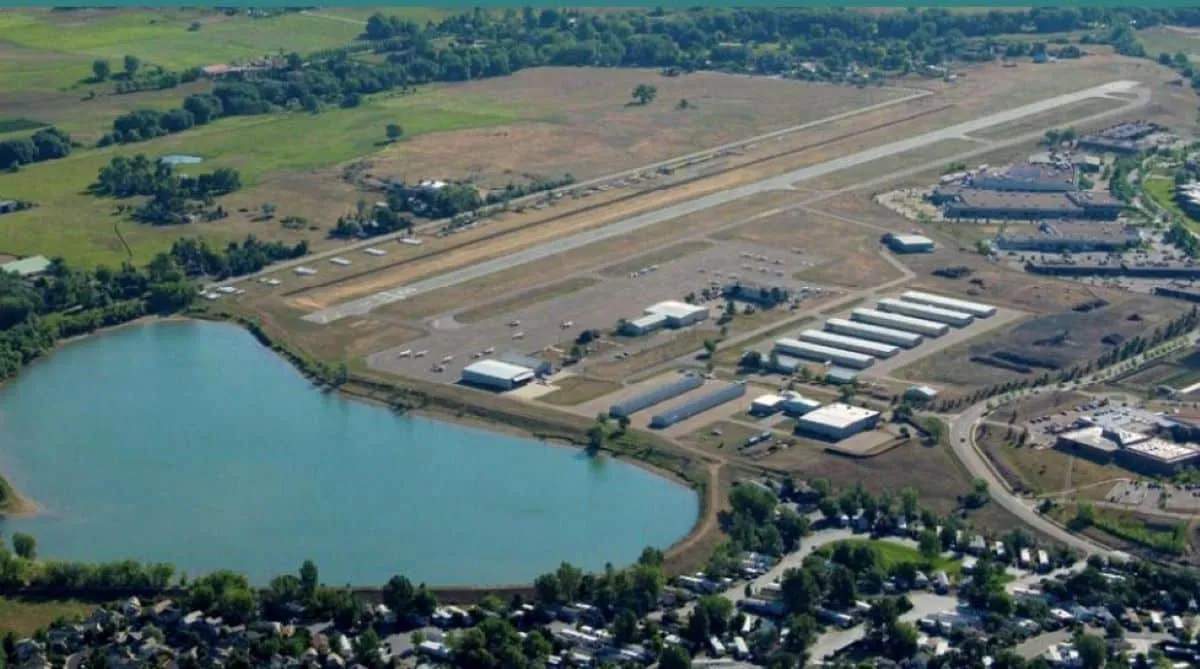Boulder Municipal Airport closure hearing leaves more questions than answers

BOULDER — The Boulder City Council declined to take a specific position on whether members support closing the Boulder Municipal Airport or continuing to operate in perpetuity after a lengthy discussion with city staff and consultants on Thursday evening.
City staffers had asked the elected officials for some guidance in how to approach planning for the future of the airport, but a financial analysis of two options — closing the airport in 2041 after the city’s obligations to the Federal Aviation Administration expire or continue to operate it for the foreseeable future — left some members of Boulder City Council with more questions than answers.
“There is so much information that we don’t have, ” Boulder City Councilmember Mark Wallach said. “… We’re just not getting the analysis that we think we need.”
Boulder Municipal Airport — which for years has lacked sufficient funding for significant maintenance and capital improvement projects, and is only used regularly by a few hundred pilots — has been identified by housing advocates as a prime location for the development of below-market rate homes.
In late June, a pair of separate but complementary petitions related to decommissioning BDU for the purpose of building housing — Repurpose Our Runways and Runways to Neighborhoods — received enough signatures to potentially appear on the November ballot.
To achieve the desired affordable housing, the city would sell acreage within the current airport footprint to developers on the cheap, with the pledge that a certain percentage of homes built there would be sold at below-market prices.
Boulder City Council is expected to begin discussing its positions on the ballot measures next month.
Opponents of decommissioning, which include businesses and the Boulder Chamber, argue that the decommissioning proposal isn’t feasible and could prove economically harmful both to businesses and city coffers.
The city’s financial analysis, presented on Thursday to members of the Boulder City Council, compared two scenarios:
In the first, the Boulder Municipal Airport continues to operate for aviation purposes for the foreseeable future with continued federal funding assistance and increased investment in improvements to maximize operations revenue. Over the next 18 years, Scenario One has associated costs that total $54 million and revenues of $40.4 million (both figures are estimated in 2041 dollars).
The second scenario would have the city reject future grant funding from the FAA, minimize capital improvement spending, close the airport in 2041 and sell the land. Not including the land sale, Scenario Two features 18-year revenue projections of $25.6 million and expenses of $37.3 million.
Here’s how city staff analyzed the land sale piece of the puzzle:
“Using the assumed current market value of $2,000,000/acre, the current value of the entire 176.4 acres of airport property is estimated at $352,800,000 in 2024 dollars. Escalating current values to 2041, the airport could be valued at an estimated $550,247,596 million in 2041,” the Boulder financial analysis report said. “…. After the sale of all airport land at fair-market value and reimbursing the FAA for federal grants received to acquire land, the city could realize a positive balance of $400,027,984. The city would likely incur additional costs (not yet calculated in this analysis) to remediate the site for any potential future use.”
The problem for several members of the Boulder City Council is that both scenarios assume a certain level of private investment in the airport that appears unlikely to materialize.
“We’ve heard interest” from businesses that could build new facilities at BDU, Boulder transportation and mobility director Natalie Stiffler said. “But I think the conversation that we’ve been having over the last couple of years (about potentially decommissioning BDU) causes some hesitation from the development community.”
If the airport were to close in 2041, it could be very difficult for businesses to recoup their capital investments in less than two decades, Boulder staff and officials said.
“Why would anybody spend money (developing new operations at the airport only) to lease for 18 years?” Boulder City Councilmember Tara Winer asked rhetorically. “… Why in the world would we spend so much time talking about this thing that is never going to happen?”
Without some sort of incentive from the city, “the likelihood of anyone wanting to build at the airport is likely extremely low,” Boulder airport manager John Kinney said.
Boulder officials requested additional information from staff about revenue and expense projections for airport operations, estimated legal expenses should the FAA sue the city over a decision to decommission BDU, estimated cost of remediation services necessary to make the property suitable for housing development and a study of what types of housing make most sense for the site.
“I’m hopeful that some of that information can be made available prior to the election,” Boulder City Councilmember Taishya Adams said.
While that information is being compiled, “we will not currently seek additional grants now, which we don’t need to do to continue to comply with our current obligations to the FAA,” Boulder City manager Nuria Rivera-Vandermyde said.
Because FAA grants come with a 20-year obligation to continue airport operations, accepting new federal funding would push a potential closure date back several years. The last time the city accepted such a grant was 2021, which is why the earliest BDU could close is 2041.
The Boulder City Council declined to take a specific position on whether members support closing the Boulder Municipal Airport or continuing to operate in perpetuity after a lengthy discussion with city staff and consultants on Thursday evening.
THIS ARTICLE IS FOR SUBSCRIBERS ONLY
Continue reading for less than $3 per week!
Get a month of award-winning local business news, trends and insights
Access award-winning content today!





